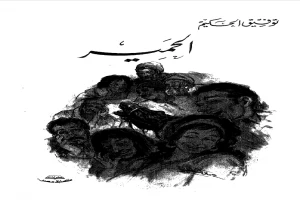Newly released
This book is new and will be uploaded as soon as it becomes available to us and if we secure the necessary publishing rights.

الحمير Book PDF
(0)
Author:
Tawfeek Al HakeemNumber Of Reads:
27
Language:
Arabic
Category:
literatureSection:
Pages:
156
Quality:
good
Views:
884
Quate
Review
Save
Share
Book Description
Tawfeek Al Hakeem
He was born in Alexandria and died in Cairo. An Egyptian writer and writer, one of the pioneers of Arabic novel and playwriting, and one of the prominent names in the history of modern Arab literature. Over successive generations of writers, his famous play Ahl al-Kahf in 1933 was an important event in Arab drama, as this play was the beginning of the emergence of a theatrical trend known as mental theatre. Despite the prolific production of Tawfiq al-Hakim, he wrote only a few plays that could be represented on stage. With a great deal of depth and awareness, his theatrical movement was called mental theater due to the difficulty of embodying it in a theatrical work, and Tawfiq Al-Hakim was well aware of this, as he said in one of the press interviews: “Today I set my theater within the mind and make the actors ideas move in the absolute of meanings wearing the clothes of symbols, that is why it expanded The gap between me and the stage, and I did not find an bridge that transmits such works to people other than the printing press.Al-Hakim was the first author who was inspired in his theatrical works with topics derived from the Egyptian heritage, and this heritage was inspired by this heritage through its different eras, whether they were Pharaonic, Roman, Coptic or Islamic, but some critics They accused him of having what they described as pharaonic tendencies, especially after his novel The Return of the Spirit.
Book Currently Unavailable
This book is currently unavailable for publication. We obtained it under a Creative Commons license, but the author or publisher has not granted permission to publish it.
Rate Now
5 Stars
4 Stars
3 Stars
2 Stars
1 Stars
الحمير Quotes
Top Rated
Latest
Quate
Be the first to leave a quote and earn 10 points
instead of 3
Comments
Be the first to leave a comment and earn 5 points
instead of 3